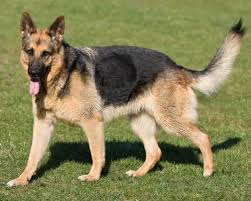What happens if my dog eats cooked mushrooms? Feed a small amount of non-toxic, cooked mushrooms, and ensure they are not cooked in dairy or as part of a processed meal. Fed in this way, non-toxic, cooked mushrooms are safe for your dog and could help stave off some cancers, reduce cholesterol, improve the digestive system, and enhance digestion.
Are mushrooms toxic for dogs? Dogs and cats are natural scavengers, but many mushrooms are toxic and can cause serious or even life threatening illness.
Can dogs eat cooked mushrooms and onions? Oils, butter, seasoning, and certain vegetables, such as garlic and onions, can be harmful to dogs. Unless the mushroom is served plain, it is generally safer to avoid feeding dishes with mushrooms to dogs.
How do I prepare mushrooms for my dog? Safe Ways to Feed Mushrooms to Your Dog
There is no need to add salt or any other seasonings, although you can try adding some low-sodium chicken broth or low-sodium beef broth to your pan of mushrooms near the end of cooking for extra flavor. Simply continue to sauté until the broth is absorbed into the mushrooms.
What happens if my dog eats cooked mushrooms? – Additional Questions
What mushrooms are toxic to dogs?
Which mushrooms are toxic to dogs?
- Amanita phalloides (death cap)
- Galerina marginata (deadly Galerina)
- Amanita gemmata (jeweled death cap)
- Amanita muscaria (fly agaric)
- Gyromitra species (false morel)
- Inocybe species and Clitocybe dealbata mushrooms.
Why are mushrooms good for dogs?
Shiitake Mushrooms
Shiitake mushrooms have 30 different enzymes and 10 amino acids. They also have minerals like calcium, zinc, magnesium, iron and selenium. And that makes them really impressive when it comes to your dog’s health (and your own for that matter). They stimulate white blood cells and improve circulation.
How do I feed my dog mushrooms?
If you want to offer your dog a mushroom it’s best to stick to shop-bought, raw, organic options and never feed wild mushrooms. Chop a small piece of mushroom and offer it to your dog, be aware though that not many will enjoy the taste, so don’t be surprised if they turn their nose up!
How do you cook fresh shiitake mushrooms for dogs?
You need to rehydrate them and then heat them. After that you can slice, blend and mix them into your dog’s food. Shiitake mushrooms are a high protein source and contain many of the same amino acids as meat. Whether fresh or dried, shiitake mushrooms contain a long list of beneficial nutrients.
Can dogs eat celery?
Celery is listed among the vegetables that are safe for dogs by multiple sources, including the veterinary website Vetstreet.com, and is often recommended as a weight-loss treat. Celery is very low in fat and cholesterol and is an excellent source of fiber, vitamins A, C, and K, folate, potassium, and manganese.
Can dogs eat broccoli?
Yes, dogs can eat broccoli. Dogs can eat the vegetable both cooked and raw, as long as there are no seasonings or oils added. However, this vegetable should always be given in very small quantities, especially because the florets contain isothiocyanates, which can cause gastric irritation in dogs.
Can dogs eat tomatoes?
Ripe tomatoes are considered nontoxic to dogs and can be fed in moderation as an occasional snack. While it’s considered safe for dogs to eat red, ripe tomatoes, the plants themselves are part of the nightshade family of vegetables (which also include potatoes, bell peppers, and blueberries).
Are cucumbers OK for dogs?
Are Cucumbers Safe for Dogs? Cucumbers are perfectly safe for dogs to eat, and offer a low-calorie, crunchy snack that many dogs love. Cucumbers only contain about 8 calories per one-half cup of slices, compared to the 40 calories in a single medium biscuit, and are very low in sodium and fat.
Can dogs have potatoes?
White potatoes belong to the nightshade family of vegetables, which includes tomatoes; like tomatoes, raw potatoes contain solanine, a compound that is toxic to some dogs. However, cooking a potato reduces the levels of solanine. If you do feed your dog a potato, it should be baked or boiled, with nothing added to it.
Is lettuce bad for dogs?
In general, yes. Lettuce of the romaine, arugula, and iceberg variety do not contain anything that can really harm your dog. After all, it is 90 percent water. It’s also a low-calorie snack that could be a good training treat for an overweight dog.
What does it mean if a dog licks you?
If your dog loves to lick you, it’s for a few reasons: they’re very affectionate, looking for your attention, or acting on their wild instinct. A dog licking its owner is so common, dog owners usually call it “giving kisses” and consider it a sign of affection.
Are carrots good dogs?
Yes, dogs can eat carrots. Carrots are an excellent low-calorie snack that is high in fiber and beta-carotene, which produces vitamin A. Plus, crunching on this orange veggie is great for your dog’s teeth (and fun) and it is included in many dog foods.
Is cabbage good for dogs?
A leafy green or red vegetable, cabbage is a good low-calorie snack for dogs since it contains essential nutrients and vitamins that dogs need for optimal gut health and a strong immune system.
What is the best vegetable for dogs?
Dog-Friendly Vegetables
- Carrots.
- Green Beans.
- Broccoli.
- Beets.
- Celery.
- Cucumber.
- Yams /Sweet Potatoes.
- Butternut Squash. Benefits: Butternut squash contains lots of vitamins and minerals like A, C, B6 and more which help your dog’s immune system, vision and cardiovascular function.
What fruits can dogs not have?
What Fruits Are Not Good for Dogs?
- Avocado. This fruit contains persin, a toxin that makes dogs throw up and have diarrhea.
- Cherries. Cherry pits contain cyanide.
- Grapes. Grapes can cause sudden kidney failure in dogs.
- Tomatoes. The green parts of the tomato plant have solanine, which is toxic to dogs.
Can dogs eat ice cream?
Dogs Don’t Digest Milk Well
Eating ice cream may cause your dog a stomach ache or worse, depending on how sensitive they are. Ice cream can cause your dog gas, bloating, constipation, diarrhea or vomiting.
Can dogs eat french fries?
French fries are high in salt, fat, and carbs, which can lead to canine weight gain. Restaurant or fast food fries can be hazardous to dogs because of their exceptionally high salt content. Additionally, restaurant-prepared fries often contain seasonings harmful to dogs, like garlic or onion powder.




